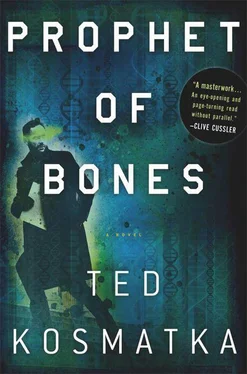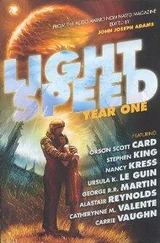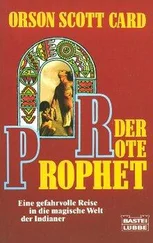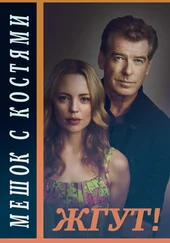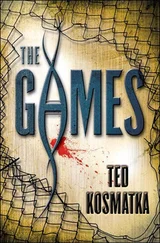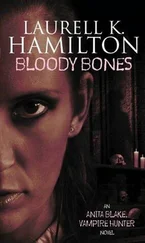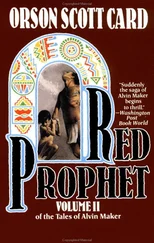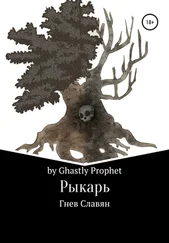Gavin looked over at Margaret. She stared straight ahead, her face set in stone.
“Do you understand?”
“Yes,” Gavin said. “I understand.”
And he knew then that Margaret had been working for Martial for a very, very long time.
Paul drove north. Just the road for its own sake, the slow accumulation of mile markers ticking off the distance between himself and the disaster that his life had become. Each time he thought of a place he should go, he found a reason it wouldn’t work. Wherever he went, they would find him. There was no place far enough to run.
And what they’d done to Charles…
He shook his head, trying to put the images out of his mind.
If they’d done that to Charles, there would be no mercy for him. Paul considered this while he drove. Perhaps it was fair. First James, now Charles. Two men who’d still be living right now if not for him. Perhaps it was only fair that Paul paid what was owed. He’d caused so much destruction already.
He pulled off the highway and stopped at a gas station.
He filled his tank.
Would they have access to his debit records, he wondered? Would they be able to track him? He imagined it turning up in the murder investigation, once his body was found. He imagined the detectives puzzling over his expenditures, noting the times and places where he’d spent his last days, trying to divine some hidden meaning in the chicken entrails of his credit card statement. Or perhaps it wouldn’t be a murder investigation after all, but merely a missing persons report. He wasn’t giving them enough credit. Perhaps his body would never be found.
Paul paid at the pump, then went inside and bought a six-pack of Coke and a hot dog. There was an ATM next to the bathroom, so he withdrew the maximum amount, four hundred dollars. That would get him a little distance, at least, though it would no doubt produce a paper trail that the police could follow later.
And maybe more than just the police.
A chill crept across Paul’s neck.
Lillivati.
Had he used his debit card on the way out to see her?
Had he put her in danger, too? He tried to remember if he’d stopped for gas in Chicago. He’d paid cash to enter the museum; he recalled that much. He remembered the text then, and his stomach dropped. If they had access to his phone records, they’d be able to track her down.
And the bone. Jesus. She still had the disk of bone.
He grabbed his phone. He scrolled down through the texts, and there it was : Should be able to test in a few days.
“Jesus,” Paul hissed.
He ran outside, dove into his car, and stomped on the gas. The tires chirped as he headed for the highway.
* * *
He drove through the night, careful to keep his speed under seventy-four. It was after dawn by the time he made Chicago, the Tuesday morning traffic already starting to build. He parked his car in the same lot as before, though at this hour there were a lot more empty spaces.
After parking, he sat and scrolled through his phone list again, looking for her number. He found it, and his finger hovered indecisively over the Call button. Eventually, he put his phone away. The less traceable contact he had with her, the safer she’d be.
He reached into the backseat and grabbed a book that had been sliding around the floorboard for the last few months . Comparative Embryology. He’d gotten it at a conference last spring and had been meaning to bring it up to his office to shelve with the rest of his collection. Now he was glad he hadn’t. He needed the paper. He ripped a page out of the back, blank on one side. After rummaging for a while in his center console, he located a pen. A few quick shakes brought the coagulated ink to life, and he started writing, opting for short and blunt.
They know. I’m so sorry for bringing you into this. Meet me with the bone in an hour down at the far end of the Lakefront Trail. After that, I’ll be out of your life. For your own safety, forget I ever contacted you. I’m so sorry. Flush this note.
He folded the note in half and climbed out of the car. He popped the hatch and pulled out a ratty baseball cap that had gotten wedged in one corner, along with an old jacket. One of the benefits of driving an old car, he realized, was that it had a long time to accumulate various forgotten cargo that might come in handy for surreptitious activities. He pulled the cap down over his eyes. It wasn’t a disguise, really, but at least it made him less recognizable at a distance. Or at least that’s what he decided to tell himself.
He left the parking garage and crossed the street, taking his time as he strolled the walkway around to the far end of the block. The Field Museum glowed bone white in the early morning sunshine, huge and sprawling, contained on all sides by a border of cement walkway. A man in a tattered jacket stood at the corner hawking newspapers. Paul bought today’s issue and found a park bench with a good view of the museum’s south entrance. It wasn’t a great plan, but he was about as inconspicuous as he could manage on short notice.
Then he waited.
He scanned the same headline over and over without really reading it—VATICAN PEACE TALKS BREAK DOWN—flitting his eye toward the entrance every ten seconds.
She arrived at eight-fifteen on the nose, pulling into the small west parking lot in her sporty green Cooper.
Paul stood and shook out the paper.
He waited for her to exit her car, and then he moved quickly, closing the distance and intercepting her at the bottom of the wide steps.
Her face revealed shock, but not fear, at seeing him. He knew then that they hadn’t gotten to her yet.
“Paul—”
“Don’t speak,” he told her. “Just smile.”
The shock changed to confusion, then concern. A moment later it smoothed out to an even expression that might have been interpreted as a smile.
“We’re going to shake hands like old acquaintances who just bumped into each other, and then we’ll go our separate ways.”
“Okay…” she said slowly. Her brow furrowed.
He held out his hand and she shook it. He palmed her the note.
“I can explain more soon,” he said. “But for now, read the note.”
He tipped his cap to her. “Good day.”
“Bye, I guess,” she answered.
And with that he continued walking. She turned and climbed the steps.
He took the sidewalk all the way around the museum and eventually made his way back to the parking lot, occasionally glancing behind himself to see if anyone was following. No one was.
Once in his car, he pulled out of the lot and eased into traffic, continually checking his rearview.
It was a five-minute drive to the parking lot.
He waited for her at the far end of the Lakefront Trail, the broad cement walkway that hugged the shoreline between the museum and the yacht club. He watched the boats rock and sway on the undulating waves. Out over the water, the sun rose higher in the sky. Behind him, seagulls pinwheeled against the backdrop of skyscrapers.
It was almost ten when she joined him. By then he was sitting on the cement ledge, his feet dangling over the water. She sat. Her elbow touched his.
“As far as kiss-offs go,” she said, “this was pretty creative.”
“That’s what you think?”
“No.” She looked at him. “I see your face… and no, I don’t think that.”
“Did you bring the bone?”
“I brought it.” She shifted her hand, showing him the small plastic bag. “What happened?” she asked.
“I wouldn’t know where to begin.”
“You’re in some kind of trouble?”
“Some kind, yeah.”
“I don’t understand this,” she said.
Читать дальше
